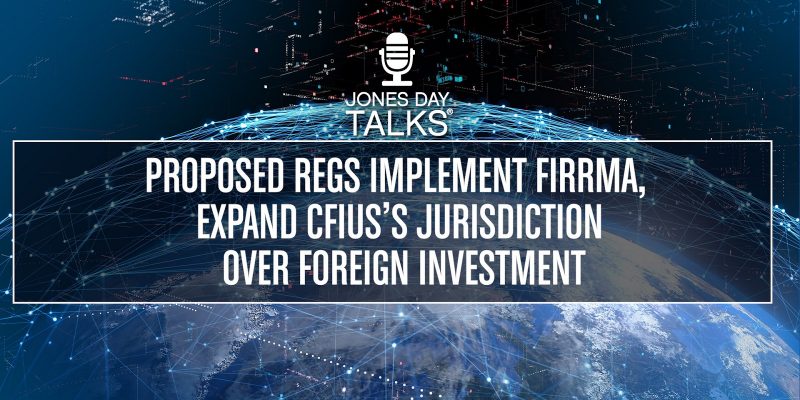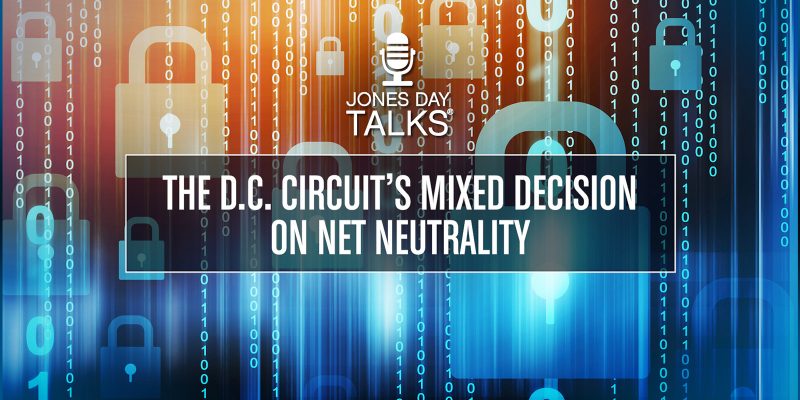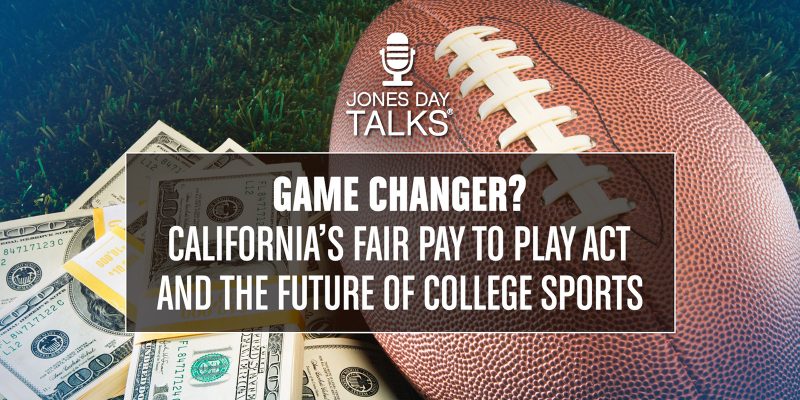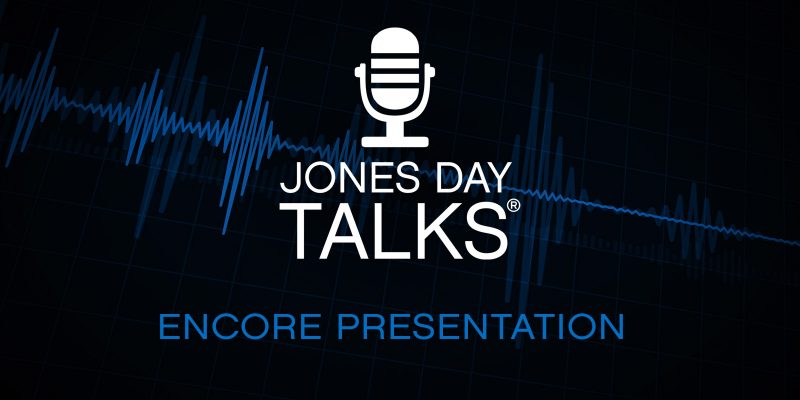Proposed regulations, which will implement the Foreign Investment Risk Review Modernization Act (“FIRRMA”) next year, revise the process for review of foreign investments and also reflect the U.S. government’s evolving view of what sectors of the U.S. economy (such as real estate, life sciences, and data collection or maintenance) raise national security concerns and, as result, will be subject to heightened scrutiny.
Jones Day’s Laura Fraedrich, Chase Kaniecki, and Justin Huff explain why a growing number of industries must consider FIRRMA’s implications when structuring transactions involving non-U.S. investors.
Podcast: Play in new window | Download
Subscribe: RSS





